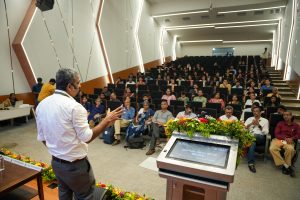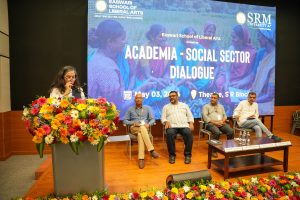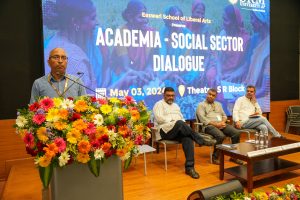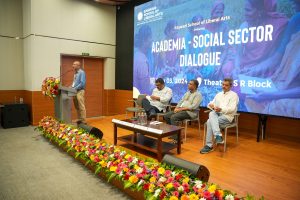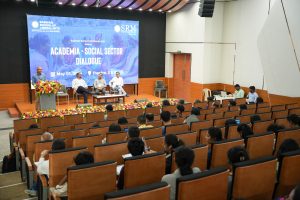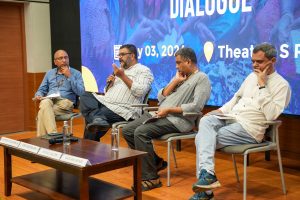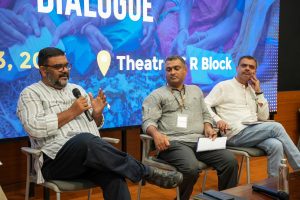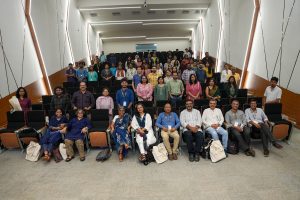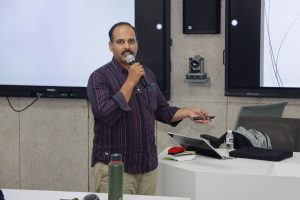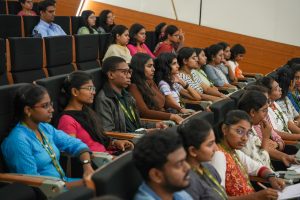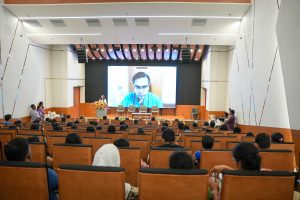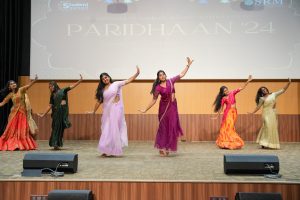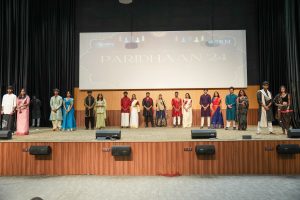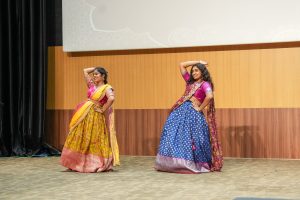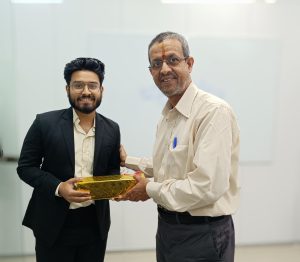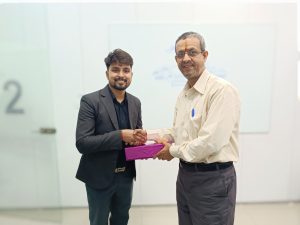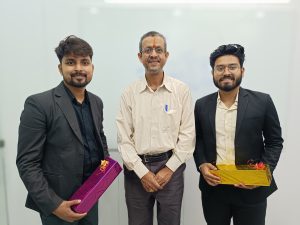Easwari School of Liberal Arts Facilitates Transformative Academia-Social Sector Dialogue
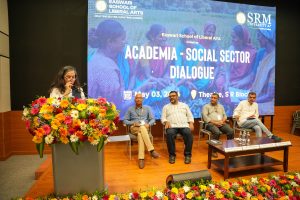 The Easwari School of Liberal Arts hosted the highly anticipated “Academia-Social Sector Dialogue” event, aiming to foster collaboration between academia and the social sector. The event brought together experts, social actors, scholars, practitioners, and students to engage in insightful discussions about the intersection of education and social sector development.
The Easwari School of Liberal Arts hosted the highly anticipated “Academia-Social Sector Dialogue” event, aiming to foster collaboration between academia and the social sector. The event brought together experts, social actors, scholars, practitioners, and students to engage in insightful discussions about the intersection of education and social sector development.
The event, convened by Prof. Vandana Swami, brought together a distinguished array of social sector leaders, Academicians from various states across India, deans, faculties, and students. It was a day of enlightening discussions and knowledge exchange, aiming to bridge the gap between academia and the social sector.
At the heart of this dialogue was a commitment to nurturing well-rounded, socially conscious leaders of tomorrow. The event provided a platform for students to engage directly with eminent figures from the social sector, fostering a deeper understanding of real-world challenges and opportunities.
The dialogue saw participation from leading social actors, including Liby Johnson (Gram Vikas, Odisha), Ronak Shah (Seva Mandir, Udaipur), Nishant Aggarwal (Donyi Polo Cultural and Charitable Trust, Arunachal Pradesh), Swapna Sarangi (Foundation for Ecological Security, Odisha), Gayatri Menon (Independent Researcher, Public Health Foundation of India, Bengaluru and Academic luminaries, such as Suraj Jacob (Azim Premji University, Bengaluru) and Manu Mathai (World Resources Institute, Bengaluru) Yamini Aiyar, Former President, Center for Policy Research, New Delhi, added depth to the dialogue, offering nuanced perspectives on the intersection of academia and the social sector.
Prof. Vishnupad, Dean of Easwari School of Liberal Arts, expressed his satisfaction with the event’s outcomes, stating, “We are delighted to have facilitated this enriching exchange between academia and the social sector. The discussions were not only insightful but also generative, paving the way for potential future collaborations between students and social sector organisations that can bring about positive change in the society.”
A highlight of the event was the keynote speech by Amitabh Behar, Global Executive Director of OXFAM. Behar’s insights sparked discussions among attendees, leading to reflection and action-oriented dialogue on caste, gender, and economic inequality. This prompted introspection and dialogue on the responsibilities of civil society in addressing these urgent issues.
The event featured thought-provoking panel discussions on two key themes: “Social Sector and the Indian State: Challenges and Opportunities” and “Role of Social Sector in Liberal Arts Education.” Panellists deliberated on the complexities and possibilities within the social sector, exploring ways to address challenges and leverage opportunities for societal progress. The dialogue was not only engaging but also fruitful, laying the groundwork for potential collaborative efforts in the future.
Furthermore, discussions on the Easwari School of Liberal Arts Summer Immersion Programme underscored the institution’s commitment to experiential learning and social impact.
Prof. Vandana Swami, Professor, Easwari School of Liberal Arts remarked, “Academia-Social Sector Dialogue epitomises SRM University-AP’s ethos of excellence, innovation, and social responsibility. It serves as a testament to the university’s unwavering dedication to shaping future leaders who are not only academically proficient but also socially conscious and empathetic global citizens”.
- Published in Departmental News, History Current Happenings, Liberal Arts News, Media Studies, News
Paaridhan: Weaving a Tapestry of Culture and Ethnicity!
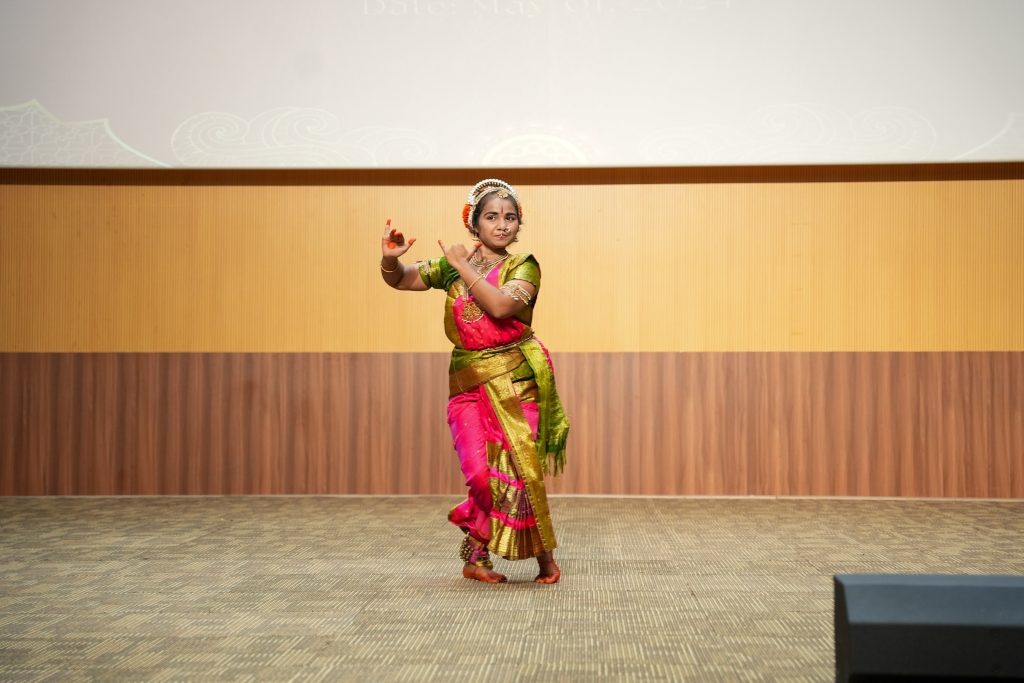
“India is a place where colour is doubly bright. Pinks that scald your eyes, blues you could drown in.” – Kiran Millwood Hargrave
This was a reality at SRM University-AP on May 01, 2024, as the university transformed into a vibrant hub of cultural pride and unity as it celebrated “Paaridhaan”. Students dazzled the campus with an array of performances, fashion walks, and activities, each showcasing the rich tapestry of our diverse backgrounds. The campus was engulfed in a colourful hue as students attended the celebration adorned in traditional ethnic wear.
This remarkable event, organised under the aegis of the Directorate of Student Affairs, included breathtaking dance acts, soulful musical performances, and a fashion show that captivated all in attendance. This celebration brought the university together and left lasting memories of a community united in its diversity.
- Published in Departmental News, News, student affairs news
Groundbreaking Research on Advanced Technology Nodes
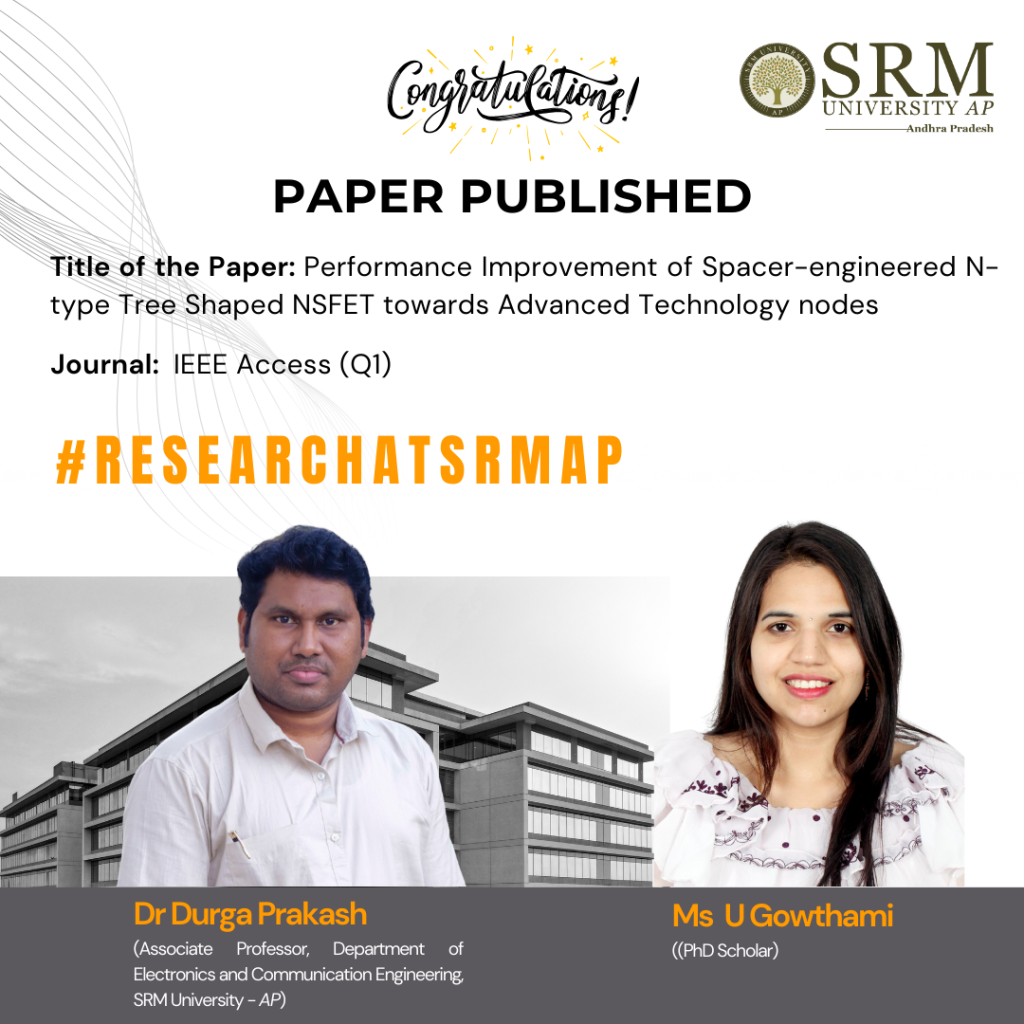
Dr M Durga Prakash, Assistant Professor in the Department of Electronics and Communication Engineering, and his PhD scholar, Ms U Gowthami, have published a research paper titled “Performance Improvement of Spacer-engineered N-type Tree Shaped NSFET towards Advanced Technology nodes” in the Q1 journal, IEEE Access. The paper has an impact factor of 3.9 and will pave the way for significant advancements in the field.
Here’s an abstract of their research paper
Abstract:
Scaling gate lengths deep is most reliable with tree-shaped Nanosheet FETS (NSFET). This paper uses TCAD simulations to study the 12nm gate length (LG) n-type Tree-shaped NSFET with a stack of high-k dielectric (HfO2) and (SiO2) spacers. The Tree-shaped NFET device features high on-current (ION) and low off-current (IOFF) with T(NS) = 5 nm, W(NS) = 25 nm, WIB=5nm, and HIB = 25 nm. Comparison of single- and dual-k spacer 3D devices and DC properties are shown. Because fringing fields with spacer dielectric prolong the effective gate length, the dual-k device has the highest ION / IOFF ratio, 109, compared to 107. This research also examines where work function, inter bridge height, breadth, gate lengths, temperature, and analog/RF and DC metrics affect the device. The suggested device has good electrical properties at 12 nm LG, with DIBL = 23 mV/V, SS = 62 mV/dec, and switching ratio (ION / IOFF) = 109. The device’s performance proves Moore’s law applies to lower technological nodes, enabling scalability.
The link to the article- https://ieeexplore.ieee.org/document/10499264 DOI: 10.1109/ACCESS.2024.3388504

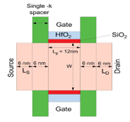
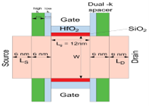
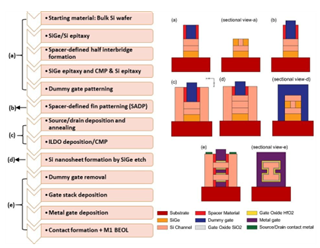
- Published in Departmental News, ECE NEWS, News, Research News
Enhancing International Placements with Simandhar Education
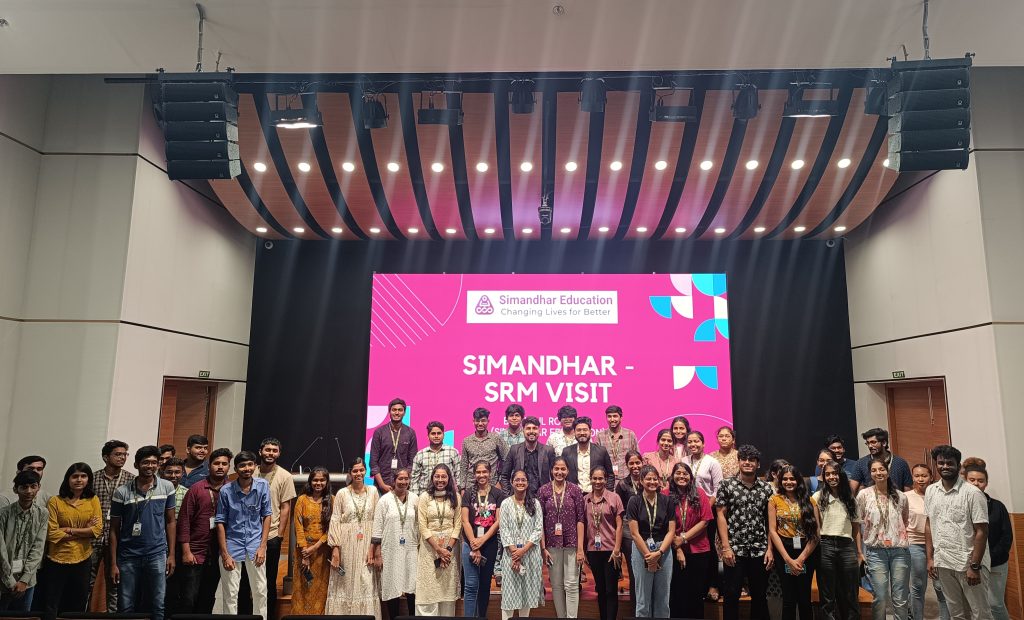
The Paari School of Business has networked with various industry, academia, and social sector partners to ensure that the management and commerce students are placed at national and international firms with lucrative packages. Recently, the school had a visit from Simandhar Education, one of India’s leading institutes providing certified US finance courses in India on April 29, 2024. Mr Rahul Roy and Mr Anupam Biswas, SME from Simandhar Education, shared a comprehensive insight into a potential collaboration between Paari School of Business and Simandhar Education.
Simandhar Education is one of the renowned Indian institutes that provide US CPA/CMA/EA courses. They have 100+ Corporate Tie-ups for training and placement, including with Big 4s and Top 10 global accounting firms. They are the best channel partner of Becker in India, an approved channel partner of AICPA and a Silver approved partner of IMA.
Mr Roy explained the extensive services offered by Simandhar Education in providing quality training and placements for the students of Paari. These include live interactive classes, recorded classes, unlimited practice tests, mock tests, revision lectures, etc. This partnership could be a silver lining for the students of Paari as it enhances their chances of placement in multinational firms in the US.
- Published in Departmental News, News, Paari Current Happenings


